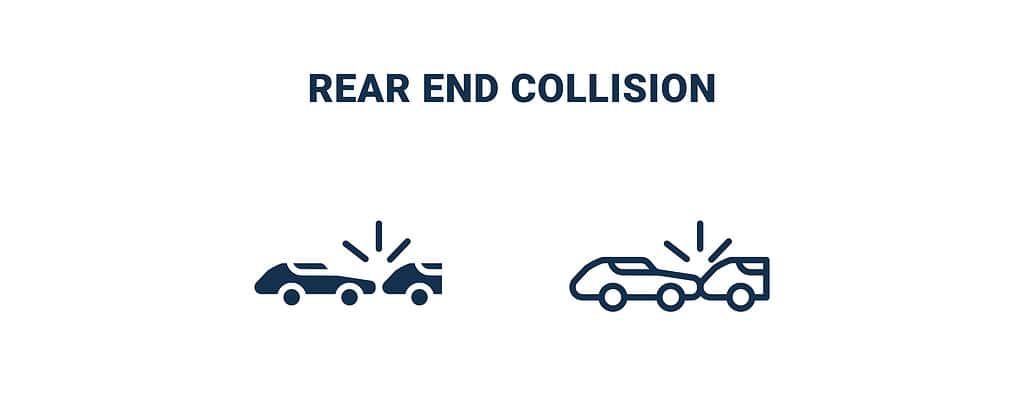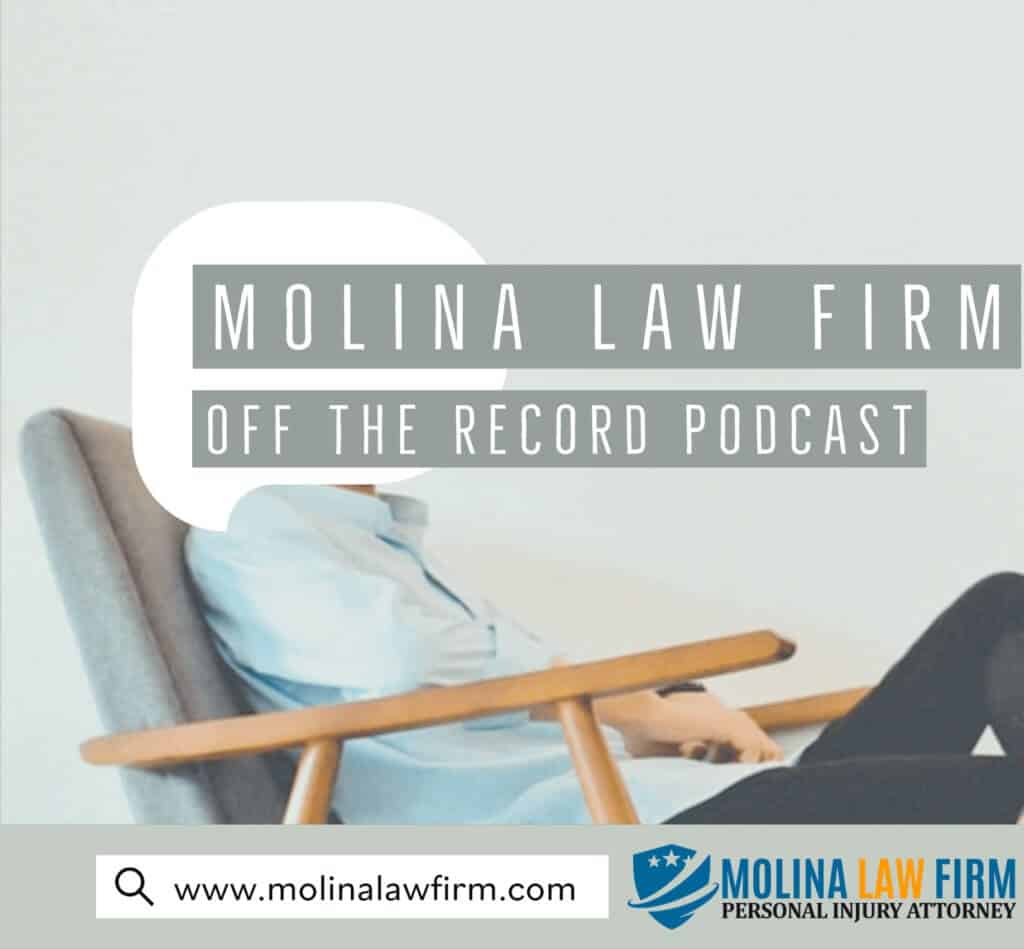 Rear-end collisions resulting in wrongful death can have devastating consequences for families in Houston. If you have lost a loved one in a Houston Wrongful Death Rear End Accident, Molina Law Firm can provide you with expert legal guidance and support. Contact us at (281) 922-4300 for a free accident consultation and learn about your legal options.
Rear-end collisions resulting in wrongful death can have devastating consequences for families in Houston. If you have lost a loved one in a Houston Wrongful Death Rear End Accident, Molina Law Firm can provide you with expert legal guidance and support. Contact us at (281) 922-4300 for a free accident consultation and learn about your legal options.
Understanding the Severity of Rear End Collisions in Houston
Rear-end collisions are a prevalent type of car accident in Houston, often resulting from common causes and contributing factors.
Common Causes and Contributing Factors
Several factors contribute to the occurrence of rear-end collisions. These include:
- Distracted driving: This includes activities like texting, eating, or using electronic devices while driving.
- Tailgating: Following another vehicle too closely reduces stopping time and increases the risk of rear-end accidents.
- Insufficient stopping time: Failing to maintain a safe distance from the vehicle ahead can make it challenging to stop in time to avoid a collision.
- Drowsy driving: Fatigue impairs reaction time and attentiveness, increasing the likelihood of rear-end accidents.
- Driving under the influence: Alcohol or drug impairment significantly affects judgment, coordination, and reaction time.
- Sudden speed changes: Rapid acceleration or deceleration without proper signaling can catch other drivers off guard.
- Adverse weather conditions: Rain, fog, or ice can make roads slippery and reduce visibility, leading to rear-end collisions.
- Mechanical failures: Faulty brakes or other vehicle malfunctions can compromise a driver’s ability to stop in time.
Statistical Overview: Houston's Rear-End Accident Prevalence
Houston experiences a high frequency of rear-end collisions due to heavy traffic and rapid urban growth. In fact, rear-end accidents are the most common type of car accident not only in Houston but also across the entire United States. Understanding the statistical overview of rear-end accident prevalence in Houston helps raise awareness of the severity of these incidents and the need for proactive measures.
Typical Injuries Sustained in Rear-End Crash Scenarios
Rear-end collisions can result in a range of injuries, varying in severity. Some common injuries sustained in a rear-end accident include:
- Whiplash: Neck injuries caused by the sudden back-and-forth motion of the head during impact.
- Back and spine injuries: Damage to the spinal cord or vertebral column, leading to persistent pain or mobility issues.
- Head and brain injuries: Concussions, traumatic brain injuries, or other head-related injuries that can have long-term cognitive and physical effects.
- Internal organ damage: Impact during a rear-end collision can cause damage to internal organs, leading to severe complications.
- Chest injuries: Seatbelt or airbag deployment can cause rib fractures, lung contusions, or other chest-related injuries.
- Facial and dental injuries: Impact with the steering wheel or dashboard can result in facial fractures, lacerations, or dental damage.
These injuries can have a significant impact on the physical well-being and overall quality of life for both the victims and their families.
Legal Guidance for a Houston Wrongful Death Rear End Accident Case
Wrongful death claims can be filed by close family members or representatives of the deceased’s estate in rear-end crashes that result in fatalities. These claims seek compensation for various damages, including medical and funeral expenses, loss of companionship, and more. Understanding the basics of wrongful death claims, including the concepts of negligence, duty of care, breach of duty, and damages, is essential in navigating the legal process.
The Basics of Wrongful Death Claims in Rear-End Crashes
When a person loses their life in a rear-end accident, the surviving family members or representatives of the deceased’s estate may have grounds to file a wrongful death claim. These claims are a legal avenue to seek compensation for the damages resulting from the loss, such as medical expenses incurred, funeral costs, and the emotional pain and suffering of losing a loved one.
To establish a successful wrongful death claim, the following elements must be proven:
- Negligence: It must be demonstrated that the defendant(driver at fault) acted negligently, breaching their duty of care to operate their vehicle in a safe and responsible manner.
- Wrongful death: It must be proven that the death of the victim was a direct result of the defendant’s negligence or misconduct in the rear-end collision.
- Damages: The claimant (family member or representative) must show evidence of the damages suffered as a result of the wrongful death, including medical and funeral expenses, loss of financial support, loss of companionship, and emotional distress.
Seeking legal guidance from an experienced attorney specializing in wrongful death claims is crucial in navigating the complexities of the legal process and ensuring that your rights are protected. A skilled attorney will help gather evidence, establish liability, negotiate with insurance companies, and fight for the compensation you deserve.
Comparative Negligence in Texas
When it comes to determining fault in a rear-end accident, Texas follows the doctrine of comparative negligence. Comparative negligence considers the shared fault of each party involved in the accident. Even if a person is partially at fault for the rear-end collision, they may still be entitled to compensation for the damages they have suffered.
Under comparative negligence, the compensation awarded to the claimant may be reduced proportionally based on their percentage of fault. For example, if the court determines that the claimant is 10% at fault for the accident, their compensation will be reduced by 10%. However, if the claimant’s fault exceeds 50%, they may be barred from recovering any compensation.
Understanding the concept of comparative negligence and its application in Texas is crucial when pursuing legal action for a wrongful death rear-end accident case. Consulting with an experienced attorney will provide you with the guidance and expertise needed to navigate the legal process, maximize your chances of a successful claim, and secure the compensation you deserve.
Recoverable Damages In A Wrongful Death Case
When a wrongful death occurs as a result of a rear-end accident, it is important to understand the recoverable damages in such a case. These damages aim to compensate the victim’s family for the various losses they have suffered. In a Houston wrongful death rear end accident, the damages can be categorized into economic and non-economic damages.
Economic Damages
Economic damages in a wrongful death case include the tangible financial losses that the victim’s family has incurred. One significant component of economic damages is medical expenses. This covers the cost of medical treatment, including emergency room visits, ongoing therapy, surgeries, and other necessary healthcare expenses related to the accident.
Another aspect of economic damages is lost wages. This refers to the income that the deceased would have earned if they had survived the accident. It encompasses the compensation for the period of time the victim was unable to work due to the injuries sustained in the accident.
In addition to lost wages, economic damages may also include compensation for the loss of earning capacity. If the injuries from the accident result in a permanent disability or impairment that affects the victim’s ability to work in the future, the family may be entitled to compensation for the potential loss of income that the deceased would have earned throughout their career.
Non-Economic Damages
Non-economic damages in a wrongful death case address the intangible losses that the victim’s family has experienced. These losses are often more challenging to quantify, as they do not have a direct monetary value. However, they are equally significant in the overall impact of the accident.
Pain and suffering is a key element of non-economic damages. It refers to the physical and emotional pain endured by the victim prior to their death. This may include the pain and suffering experienced due to the injuries sustained in the accident and any subsequent medical treatments or procedures.
Emotional distress is another component of non-economic damages. Losing a loved one in a sudden and tragic manner can have a profound emotional impact on the family. The emotional distress endured as a result of the wrongful death is considered in calculating the non-economic damages.
The determination of non-economic damages varies depending on the specific details of the case and the evidence available. The court considers the extent of the physical pain, emotional anguish, and overall negative impact on the victim and their family’s quality of life when evaluating non-economic damages.
Building a Compelling Case for Compensation After a Rear-End Collision
When you are involved in a rear-end collision, it is essential to take immediate action to build a strong case for compensation. Following the accident, the first step you should take is to call 911 to report the incident. If you or anyone else involved in the accident requires medical attention, seek immediate assistance. Remember to exchange information with the other driver, including contact and insurance details.
To strengthen your case, documenting evidence is crucial. Use your phone to take photos and videos from multiple angles, capturing the damage to all vehicles involved, as well as the road conditions and any relevant traffic signs or signals. It is also important to gather contact information from witnesses, and if possible, obtain written statements from them. Taking timely action to preserve evidence can significantly benefit your case.
At Molina Law Firm, we specialize in maximizing rear-end accident compensation for our clients. With our expert negotiation skills and trial representation, our aim is to secure fair and maximum compensation for your injuries, lost wages, medical bills, and pain and suffering. By choosing Molina Law Firm as your legal representation, you can have confidence in our dedication and expertise in handling rear-end accident cases.


